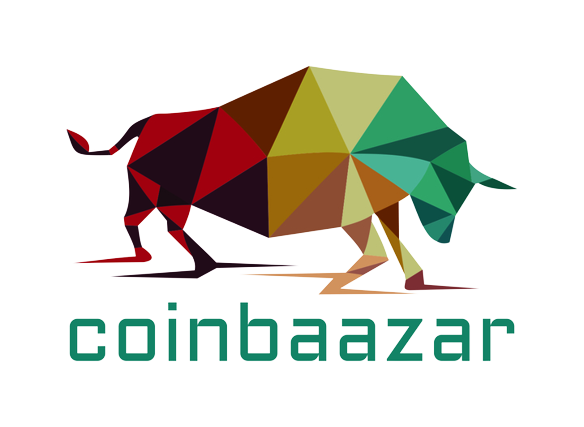Best Way To Buy Bitcoin In India-Bitcoin has undergone dramatic growth since its launch in 2009: its value surged by about 30,000 percent from October 2013 to early June 2021, for example. While this is impressive in and of itself, some analysts believe Bitcoin’s value will continue to rise as cryptocurrencies and the blockchain technology that underpins them become more ubiquitous and integrated into people’s daily lives.
However, there is one huge caveat to buying Bitcoin: while it has seen incredible highs, it has also seen terrible lows.
For example, after reaching nearly $20,000 in 2017, its value dropped and did not rise above half of that until 2020. Even if it’s been trending upward since then, it’s still an extremely risky investment, and an ill-timed tweet from Elon Musk can wipe it out. As a result, experts advise just investing a modest portion of your savings in Bitcoin.
With that stated, if you still want in on the fun, here’s how to get your hands on some Bitcoin.
4 Steps to Buying Bitcoin
1. Select a Cryptocurrency Exchange
You’ll need a crypto exchange to acquire Bitcoin or any other cryptocurrency. This is where buyers and sellers meet to trade money for coins.
There are hundreds of exchanges to choose from, but as a novice, you’ll want to go with one that offers a good mix of ease of use, minimal fees, and excellent security. If you don’t already have one in mind, check out our top selections for best crypto exchanges, which include coinbaazar, ZebPay, WazirX, CoinDCX, and Unocoin.
It is possible to move your cryptocurrency from one exchange to another. If you want to relocate your bitcoin from your coinbaazar wallet to another crypto exchange, for example, you must first withdraw your bitcoins from your coinbaazar account. Obtain the deposit address from the cryptocurrency exchange to which you wish to send your coin. Once you’ve got the deposit address figured out, you may move on to the next step. You’re all ready to make a money transfer.
2. Select a Payment Method
Before you can start investing in Bitcoin, you must first fund your account with funds from an exchange. You can fund your account through bank transfers, online banking, Mobikwik, a cryptocurrency wallet, or UPI, depending on the exchange.
Keep in mind, however, that certain funding choices may incur additional transaction fees. When you utilise UPI and bank transfers, for example, CoinDCX does not charge a fee. However, it charges 0.5 percent for net banking and 1% for Mobikwik wallet transactions over INR 2,000. WazirX, on the other hand, costs INR 23.6 (including all taxes) via net banking, or you must first top up your Mobikwik wallet using UPI or bank transfer before transferring the funds. Credit cards are not accepted for wallet transfers, and fees vary depending on the trip.
Because fees lower the amount of money you can invest (and thus the amount of money you have to grow and multiply), electronic transfers from a bank account make more sense than alternative options.
3. Make a Purchase
You can place your first order to acquire Bitcoin once your account has been financed. You might be able to buy it simply hitting a button, or you might have to type in Bitcoin’s ticker symbol, depending on the platform you’re using (BTC). After that, you’ll need to enter the amount you want to invest.
You will own a fraction of a Bitcoin once the transaction is completed. This is due to the fact that purchasing a single Bitcoin today necessitates a sizable initial expenditure. To buy a Bitcoin at the current price of $38,000, for example, you’d need to invest $38,000. If you put in less money, say $1,000, you’ll obtain a percentage of a Bitcoin, in this case 0.026 percent.
4. Choose a Secure Storage Option
Your crypto exchange most likely includes an integrated Bitcoin wallet or at the very least a favoured partner where you may store your Bitcoin safely. Some people, on the other hand, are wary about leaving their crypto connected to the internet, where it could be taken more easily by hackers.
The majority of customer assets are kept offline, in so-called cold storage, by cryptocurrency exchanges. You can store your Bitcoin in an online or offline Bitcoin wallet of your choice if you want the highest level of protection. However, keep in mind that if you withdraw cryptocurrency from an exchange, you may be charged a modest withdrawal fee. Furthermore, if you utilise a third-party crypto wallet custodian, you may lose access to your coins forever if you lose the private key that serves as your wallet password. Some Bitcoin millionaires have been robbed of their wealth as a result of this.
Buying and selling Bitcoin
When you’re ready to sell your Bitcoin, go to your exchange’s website and issue a sell order, just like you did when you first bought it. Most exchanges allow you to choose between different order types, such as selling only when Bitcoin hits a specified price or placing an immediate order.
You have the option of selling all of your Bitcoin holdings or just a portion of them. You can deposit the funds into your bank account once the sale is completed. However, before you can transfer money back to your bank account, your exchange may require a holding time. This isn’t a cause for alarm; it merely takes some time to double-check the transactions.
You might make money if you sell your Bitcoin. If you do, you’ll owe capital gains taxes because bitcoin sales are now required to be recorded on your taxes.
Should You Invest in Bitcoin?
Investing in the popular cryptocurrency, especially when its price is increasing, can be tempting. However, even though it has the potential to be a profitable investment, you should proceed with caution: It’s a very volatile investment that experts advise against putting a significant portion of your money into.
If you’re not sure if Bitcoin or other cryptocurrencies are right for you, go to a financial advisor who can help you figure out where they fit into your overall investment strategy.
The information on Forbes Advisor is given solely for educational reasons. Because your financial situation is unique, the goods and services we review may not be appropriate for you. We do not provide financial advice, advisory, or brokerage services, and we do not advise or suggest individuals to buy or sell certain stocks or assets. Since the time of publication, performance data may have changed. Past performance does not guarantee future outcomes.
Forbes Advisor maintains a high level of journalistic integrity. All content is correct to the best of our knowledge as of the date posted, albeit offers contained herein may no longer be accessible. The author’s views are his or her own, and our partners have not provided, vetted, or otherwise endorsed them.

